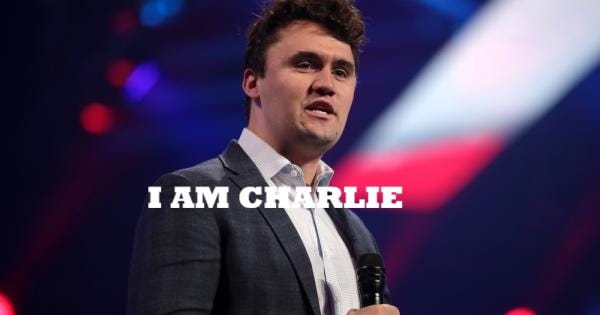I am Charlie
In the shadow of Charlie Kirk's senseless murder, a beacon of open dialogue was extinguished. This piece honors his legacy, condemns the vile celebrations of his death, and urges us all to step up.
The news hit like a thunderclap last week: Charlie Kirk, the fiery conservative activist and founder of Turning Point USA, was gunned down while speaking at Utah Valley University in Orem, Utah.
In the days since, as the nation grapples with this senseless act of violence, I've found myself reflecting deeply on Charlie's life and legacy. He wasn't just …



